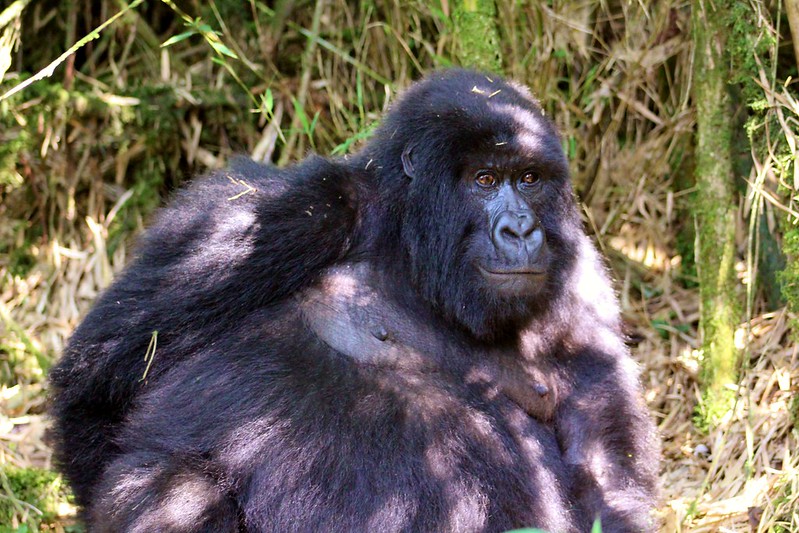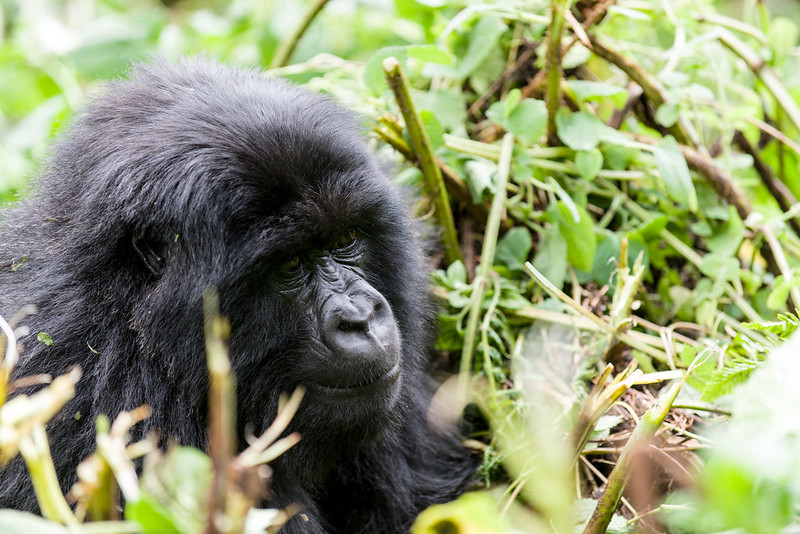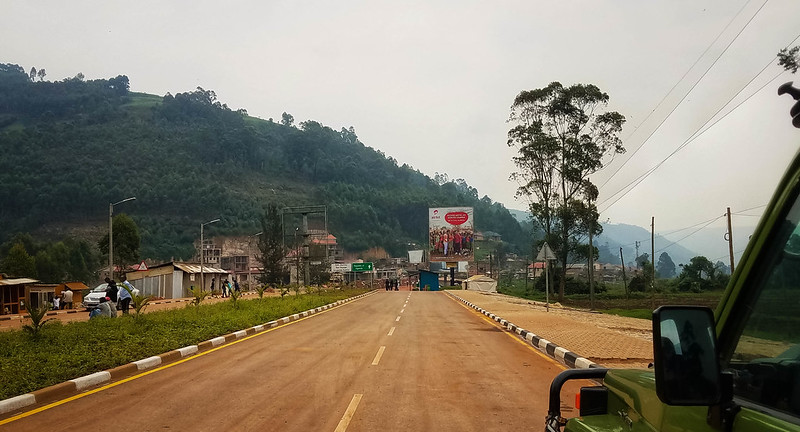How Much Is a Gorilla Trekking Permit in Uganda? Gorilla trekking in Uganda is a…
What To Do In case You Lose Your Gorilla Trekking Gears
What To Do In case You Lose Your Gorilla Trekking Gears.
While packing the correct gear for this once-in-a-lifetime adventure is part of being ready for gorilla trekking, here is what to do should you misplace your gear. Boarding aircraft is part of the journey from all around the world to perform gorilla treks in D.R. Congo or Uganda.
Even if you have all required gear for gorilla trekking, fate may call for you to lose your luggage. Booking their gorilla permits, lodging, and transportation to Bwindi Impenetrable National Park or Virunga, clients get ready for an African gorilla trekking expedition at least three to six months in advance.
Clients are always encouraged to have the correct trekking gear and they will go a long way to have things such hiking boots, long sleeved shirts, pants, rain jacket, sun glasses to list but a few in preparation for their walk.
Losing your bags could change your attitude to the gorilla trekking trip you have long dreamed about. Particularly if you have to quickly visit either Bwindi Impenetrable national park or Volcanoes National Park, this is terrible and disorganizing.
Dealing with the airline to track your bags could be frustrating and fruitless. You could start to panic as all you have on you could be just flip-flops and clothes.
One of the pleasures on any safari in Uganda or Rwanda is gorilla trekking. As discussed on many websites and publications, gorilla trekking generally takes two days in Rwanda and minimum three days in Uganda. Clients want to visit Uganda for gorillas, then link to either Tanzania or Kenya for wild game safaris.
Before heading for game safari, one must at least spend three days of uganda gorilla safari and two days on Rwanda gorilla safari in case one wishes to conduct an all-round East Africa safari. Some visitors would rather fly into Uganda and then straight to Bwindi Impenetrable National Park. Others wish to go on the second day, hike gorillas on the third, then fly or drive out of Bwindi on the fourth day.
Due to the aforesaid strict schedule, clients often come to Uganda and sometimes God for bid; their bags go missing when they make connections at Entebbe International Airport. Clients will thus have to wait for the following flight to arrive with their bags; it is invariably on the same day they are meant to drive or fly to Bwindi Impenetrable national Park.
They will have finished treking gorillas by the time their bags reach Entebbe Airport. Most of the time, the misplaced bags will contain their gorilla trekking equipment. Their last day is spent getting their bags on return from Bwindi Impenetrable national Park to Entebbe.
This has tendency to “kill” guests experience as they leave Entebbe/Kampala when they are unhappy and since they lack adequate hiking gear, they have to seek around or buy goods in Uganda which makes the whole trip costly un necessary.
Some airlines, including Emirates, will not carry your bags but will pay you a roundabout USD30.00 for that even though the expense of getting your bags to where the clients are exceeds that. Other businesses like KLM will try to get your bags to a location that is rather closer. Check your luggage policy and make sure it fits you before deciding on a travel to Uganda.
Book to pre-trip nights in Entebbe/Kampala or any other entrance point of choice so that, should you lose your luggage, you have time to locate it before gorilla trekking.
Before Bwindi Impenetrable National Park, you could as well think about starting your safari in other savannah national parks like Lake Mburo National park, Queen Elizabeth National park or Murchison Falls National Park. By the time you arrive, the bags would already be here.
Only if you allow us to assist you will we be able to aid with your bags. Should businesses fail to deliver your bags, we can and will inform you other than failing to get your luggage getting to you in cases of extra expenses involved.
Travel With Gorilla Trekking Gears: How
Every airline lets you carry weight authorized as free baggage allowance in your hand luggage. You might pack some of your gorilla trekking gear in hand luggage, less bulky items like safari clothing, hand gloves and boots and others just in case.
As security, carry some hard cash to either use or buy fresh gorilla trekking gear on ground. This covers should your bags disappear from sight. Rwanda has a clause allowing amicable hiring of some gorilla trekking gear from the ORTPN.
Pack light and in luggage you might carry by yourself—such as a duffel bag. Having lots of bags could occasionally cause you confusion and disorganize you too should you have to unload and re-pack. This uncertainty could cause you to lose your bags, thus packing small but relevantly for an Africa Safari is quite crucial.
For ease should you have to travel through a rigorous check-up, put your gorilla trekking gear in packing cubes. You could have to sort your stuff and, should they not be cleverly packed, you might find yourself forgetting some at the check point.
Just in case they get quite dirty while you are walking to find the mountain gorillas, pack a shoe bag for your safari-tracking advantage. Sometimes the ground is muddy and swampy, which makes the shoes filthy beyond description.
Should you have to move to another lodging, you might not have time to completely clean your shoes. Staining your other clothes will come from you throwing the dirty shoes among them. Your soiled shoes should be kept in shoe bags.
Should you misplace your bags, get in touch with your travel agency or tour operator to enable you to follow the bags as you head for your gorilla safari. As described above, at Monumental Expeditions and Safaris we assist our guests in tracking their bags.
How To Stop Loss Of Baggage During Trekking For Gorillas
![]() In case you are heading for a shared gorilla trekking safari, pack light and in a potable bag. these occasionally involve more persons you know nothing about.
In case you are heading for a shared gorilla trekking safari, pack light and in a potable bag. these occasionally involve more persons you know nothing about.
Never show off costly items you carry in your bags. This draws skimmers who might follow your luggage and take them before you do.
Whether at the airport or upon arrival, do not trust anyone you are unsure about to handle your bags. On practically every airport, there could be trick stars. You would be better off bringing your stuff to the transfer car. Every guide from our Monumental Expeditions and safaris carries cards bearing all the group or person they are picking from the airport.
Although they do not spread in the wild, carry your gorilla trekking supplies in a light water proof bag to keep them together even if you fall during trekking.
When gorilla trekking, hire a porter to carry your belongings; they will provide a push should you need it. There is a little cost involved here. Hiring a porter changes their life since they support their collecting for home care, schools, academic materials, medical treatment, and much more. This is just one direct approach of returning the favor to the nearby mountain gorillas.
If you have to share a room with a stranger and you are going on a planned gorilla trekking trip, do not trust they will look after your belongings. On these group trips, people scheduled from various walks of life with varying conduct. If you have valuables with you at least keep them with the lodge administration; never show them off.
If you your own airport pick-up, hire an airport taxi bearing identifiable stickers or marks from the airport exit ground. This guards you from scam artists capable of robbing you of your belongings.
Before leaving your house, purchase travel insurance with a coverage for your goods in case you misplace them.
Make sure you double-check your room before leaving on departure day following gorilla trekking to prevent missing any of your items. While some lodges employ staff members to assist guests in checking out, the duty over your property falls personally.
When you arrive in Kampala or Kigali city with bags not securely fastened to your back, avoid walking the street alone. In case they see anything lost on you, there are so many pickers and snatchers here. Even your wallet should be quite close to you and in case you have to buy something, avoid showing your moneys for everyone to view.
When should one schedule a Gorilla Trekking trip? Safari:
Although gorilla trekking is open all year long, most people visit June through September and December through January. This is thus because less rain falls in the forest, which reduces its humidity. Deeper penetration of the sunrays into the ground helps to lessen the soft volcanic soil’s soggy nature.
Navigating the already difficult Virunga environment is made simpler by the fact that even the trail pathways are not entirely free from foliage. The rainfall season is the same whether hiking Volcanoes National Park or Bwindi Impenetrable National Park.
Should a need to clean the way develop, the ranger guide has a machete to cut some creepers off.
Though less visited gorilla trekking months, March to May and November still have very wet weather. Its rains sometimes the whole day with little sunlight obtained. The rich river network in this region overflows the ground to produce swampy, slippery conditions.
To enable you to negotiate such situations, you have to bring appropriate gorilla trekking equipment. Though this phase is rarely visited, baby booms are more evident at this time. There is food enough for them. This is delivered to you on a silver-plate without you booking off other permits in case you wish a more private gorilla trekking time.
On a gorilla trekking family, which is meant to be shared by maximum eight visitors, it is simpler to be alone. There is no one else standing in your way of getting those planned pictures of the mountain gorillas. As the single master of the flow of the whole gorilla trekking excursion for that day, there is no rash or delay in your hunt for the gorillas.
How Safe African Gorilla Trekking Is
Though it is a completely jungle activity, gorilla trekking in Africa is safe particularly in Uganda and Rwanda. Together, the tourism police for Uganda and Rwanda exchange information regarding the general state of the forests.
Every gorilla trekking trip starts with a briefing where security of the jungle is discussed among other things.
Every day a group of ranger scouts enters the forest to track out where the gorillas might be feeding from that day and check its condition. Their distance from where they slept the night is not too great. They report back to the park wardens, which forward to the on-duty rangers.
You are the first security, hence personal security is also quite vital. Never venture into this dense woodland without an accompanied ranger guide. Stay with a group of hikers instead of separating from the others to avoid losing yourself in the forest.
Although the ranger guide moves at the slowest pace among the trekkers, this does not mean delay for the rest of the group since the time of gorilla spotting is uncertain. Depending on the state of the forest, you could spend two hours to over three quarters of the day.


